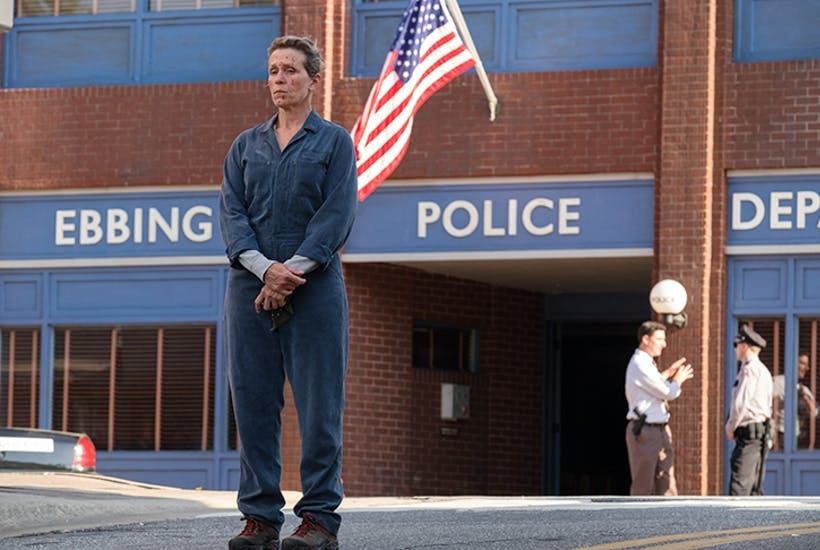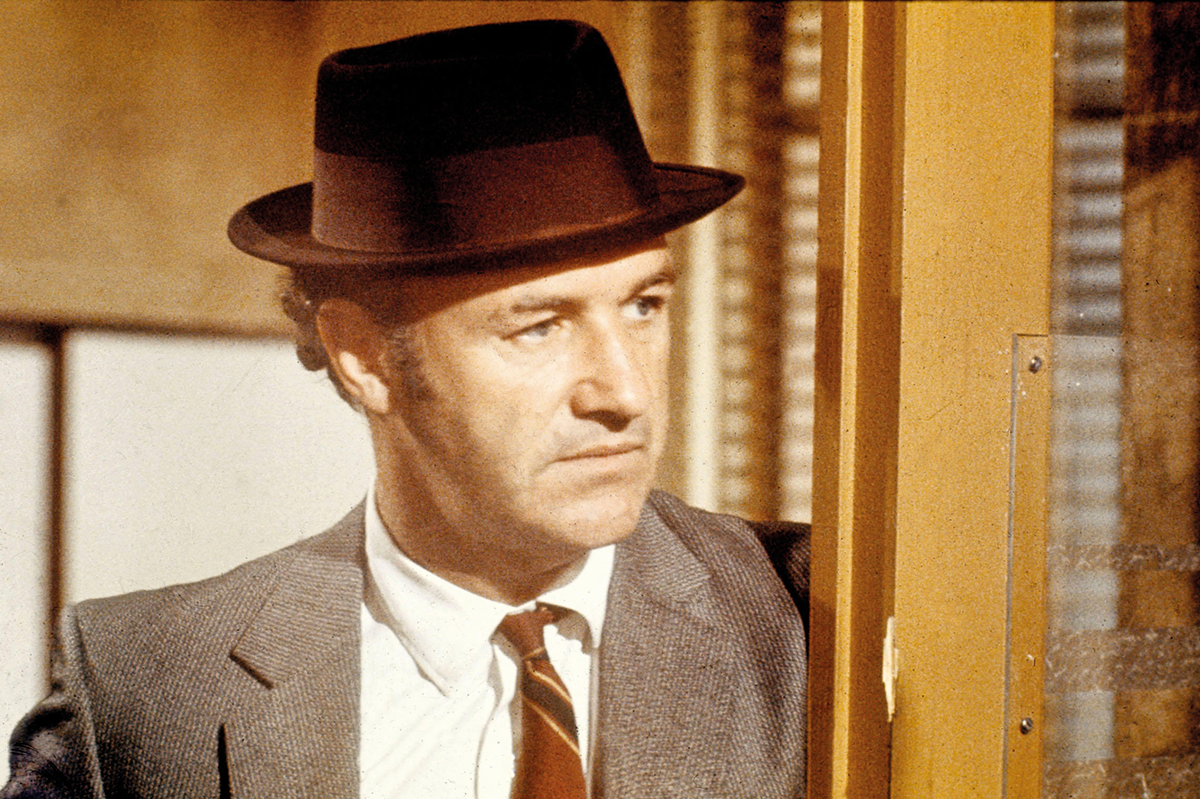Three Billboards Outside Ebbing, Missouri
does, indeed, feature three billboards outside Ebbing, Missouri. They have been placed at the roadside on the outskirts of town by Mildred Hayes (Frances McDormand), a middle-aged woman whose teenage daughter had been raped and murdered seven months earlier. The billboards read: ‘Raped While Dying’; ‘And Still No Arrests’; ‘How Come, Chief Willoughby?’ Mildred is grieving, in pain and a ball of fury. But not your regular, everyday ball of fury. She is a ball of fury of the most magnificent, unstoppable kind. If only she could go after every rapist from now on. I’d certainly sleep better in my bed.
Written, directed and produced by the Irish playwright Martin McDonagh (In Bruges, Seven Psychopaths), the film recently won four awards at the Golden Globes: best film, best screenplay, best leading actress for McDormand, best supporting actor for Sam Rockwell. And this is satisfying, as it’s about a strong woman who won’t take shit from anybody (basically) rather than, say, some Brad blubbing about his status. (Boo hoo, Brad; boo hoo.) Plus, in its furious way, it’s also a hoot and a blast, which I never thought I’d be saying about a rape movie, if it is that. Hard to know what it is. Beyond ‘different’ and ‘wonderfully so’.
To the plot: Mildred works in the town’s giftshop and no one is keen on her billboards. Her husband, who has run off with a younger woman, isn’t keen on them. The local priest who pays a visit, stupidly — she rounds on him, in her magnificent, unstoppable fury — isn’t keen on them. Her son wants her to move on but she won’t — can’t. ‘Oh, great, we’re going the rape-dying route,’ he says, as they’re about to drive past them. It is often blisteringly funny, which is why it’s also a hoot, but it’s never funny at the expense of what might be hurting anyone. The comic lines never felt off. And it’s also just so unexpected.
The film isn’t a straightforward revenge drama, redemption drama, or fighting-for-justice drama. Instead, the narrative never goes where you think it will go. Instead, it takes your narrative expectations and shreds them before your eyes. Oh, that Chief Willoughby (Woody Harrelson), head of the local police, he’s bound to be a toxic, misogynistic monster, you’re thinking to yourself. But he isn’t. (He is, as it happens, beloved by the town and is awarded his own poignant storyline.) That said, one of his officers, Dixon (Rockwell), is a violent, racist idiot known to beat up black people in custody. But he has his principles. ‘So how’s it all going in the nigger-torturing business, Dixon?’ Mildred asks him. ‘You can’t say that!’ he exclaims, genuinely offended. ‘You gotta say persons of colour-torturing business!’ But Dixon doesn’t go where you expect him to go. Instead, McDonagh prods him in a surprising and interesting direction.
All the performances are excellent, but this was expressly written for McDormand, who owns it, and who is a wonder to behold, as she tears fearlessly into the script. Mildred’s dialogue is supremely curse-laden — ‘hey, fuckhead,’ is how she might address a police officer — yet the profanity becomes a kind of poetry. She wears a focused scowl, and only smiles the once (I think; it was weird), but as harsh as she can be, you know Mildred has a broken heart under there.
It does fall apart slightly in the third act, when it becomes a bit cartoonish, and people can throw other people out of windows without consequences. And I would also add that we are never asked to consider the pain Mildred inflicts, which is considerable, just as we’re never asked to question her own taste for violence. (Tip: if you’re a dentist and you ever find Mildred in your chair, don’t piss her off.) But as a film that puts a middle-aged woman centre stage, and allows her to kick ass, it has to be terrific. There should be more Mildreds. Then we’d all sleep better in our beds.

























